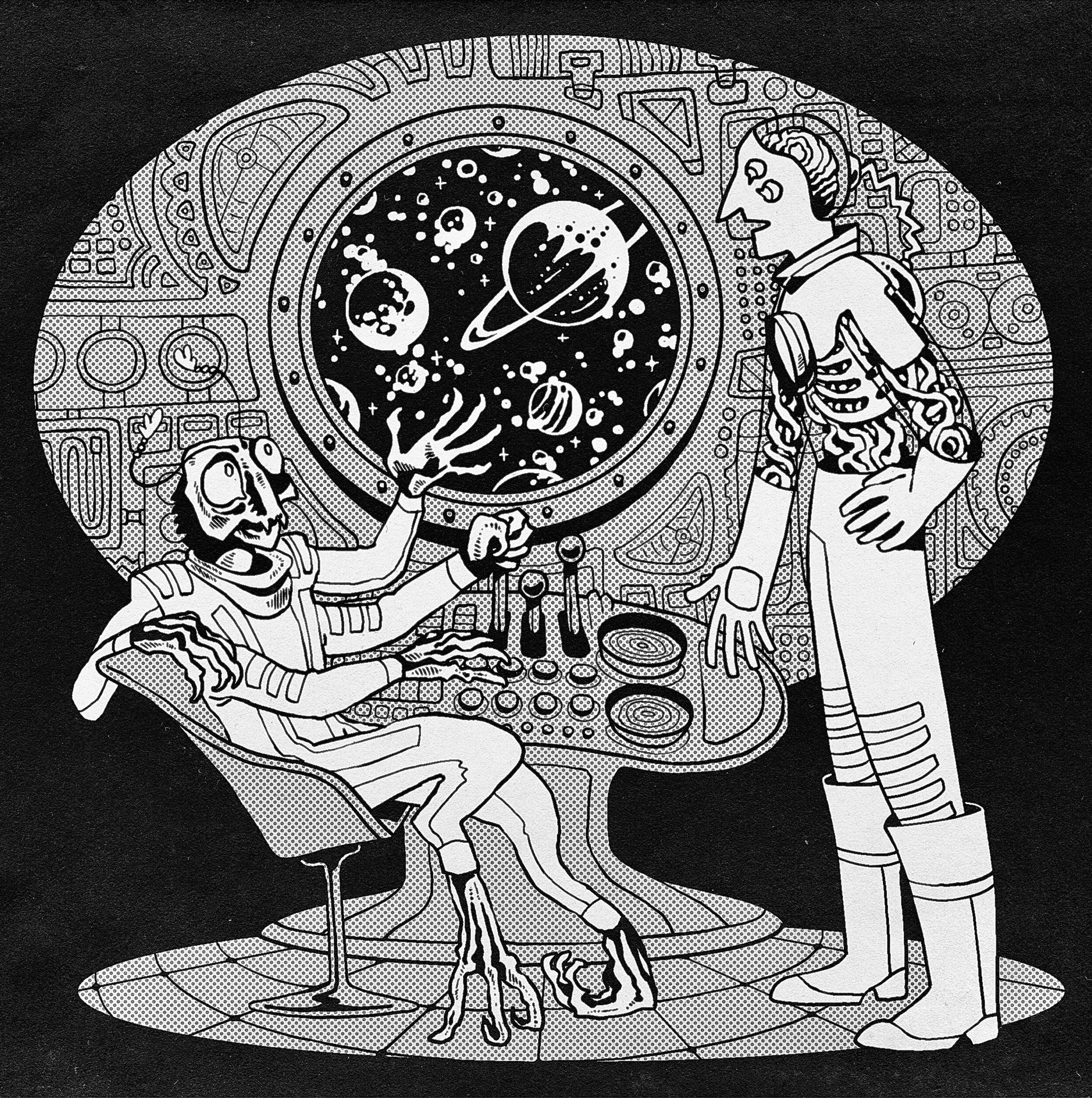The craters are hardly visible now. The cracked earth of the great divots is covered by a layer of plant life. The tall yellow grass waves in the breeze, a bandage across the land. Ticks jump from stalk to stalk, frolicking in the light. Below the earth, gophers scurry back and forth in their tunnels, embarking on errands and family business. In the dips and holes, ferns create a miniature canopy over a carpet of mosses, further sheltering the scarred ground from the sky above.
The field remembers when harsh shapes of steel and flame streaked the sky, the whistle of their plummeting payloads setting the grass trembling in anticipation. Boots slammed down on the ground, squelching the ferns into the mud as they attempted to run, to escape the inevitable. Shouts filled the air. And then a boom, as the world shook, and the ground was scarred.
But that is done now. The scars are covered, healing bit by bit.
Among the covered craters stands one hill. It is not a particularly large or notable hill. A piece of rusty scrap metal has recently been pulled aside from the little door that it once hid. The door is circular, made of dullish grey metal, and buried up to its center. Behind the inwards-swinging door, old, reinforced brick walls line the inside of the hill, forming a dome beneath the earth. A set of wooden cabinets are built into the wall opposite the door, their once white paint stained to a dark brownish gray. The floor is dirt, dry and hard packed. It conceals cigarette butts once ground under boots, stained paper and wrappers, a dropped pen with ink long dried.
The field remembers when this room was filled with voices of fear. A legless corpse on a stretcher, wailing as if it were still alive. A blinded man trying desperately to open the cabinets. A uniformed figure curled up by the wall, knocking her head slowly and repeatedly into the brick. Knock. Knock. Knock. A scream. Knock. The blind man dropped a glass. Crash. Knock. Knock. A distant explosion.
The sounds are gone now. While they are still remembered, their echoes have faded, even in the earth which holds them longer than most.
No plants grow under the hill, except for in the center of the room, where a single fern patch sprouts under a beam of light that shines through the top of the hill. This beam shines not through a window or from a conveniently placed spotlight, but through a hole, dug into the rain-and-time-weakened ceiling by a group of children trying to bury treasure.
The treasure lies near one of the walls, a cardboard box of stolen jawbreakers only half buried because the ground here is difficult to dig in and the children didn’t have the patience for it. How could they, after all, when they had found such a cool new hideout? The children did not find the remains in the dirt. The children did not hear the sounds that had echoed in the hill. The children saw only what was here now, and what was here now was good. Their shovel is still planted next to the treasure, and sticks of several shapes and sizes have recently made their way into the stash by the cabinets.
It was the sticks that drew the attention of the gophers. A series of tunnels stretching under the field, connecting at three places to the dome, were home to the local gopher family. A mother, father, aunt, grandmother, uncle, and various assorted gopher children all lived together in the tunnels and were rather confused by the new neighbors poking at their tunnels.
The gophers were timid at first, and they avoided the children. The children searched for the gophers but never managed to get close. The gophers stuck to the tunnels, and the children quickly dismissed them and ceased their attempts at stick-powered exploration. As time went on, though, curiosity got the better of both sides, and they sought to make contact. A kid left some apple slices for the gophers. The grandmother gopher brought another kid a worm. And slowly, the factions began to interact and to play.
As there are no children here at the moment, there are no gophers either, except for the uncle scrabbling at the sides of the treasure. But when the children return, there will be a vast sea of curious nibbling faces to greet them.
Throughout these events, the cabinet under the hill has remained locked, both the children and the gophers failing their attempts to open it. Its stained doors remain a mystery to them.
The field remembers when this cabinet was one of instruments of life and death. A syringe rested next to a pistol. Knives and scalpels lined the shelves. Blood shone on the stainless steel and colored the glass trays that held it.
The tools are buried now. Rainwater, moving drip by drip with the force of a flood, seeped into the back of the cabinet and collapsed it. Where once the shelves were, now a new harmonious kingdom has formed. Moss makes its home, forming little cottages and towns for itself within the dirt. Earthworms stay the night at the moss towns, a pitstop on their lifelong journey. Delving down from above to explore this new land, roots take hold, providing a new stability for the earth below and the plants above. If the children and gophers were to ever open the cabinet, they would not be impressed by the new contents, but for the field there is nothing that could make it happier.
The field rests easy below the occasional chattering of the animals and plants, great and small, above and beneath.





